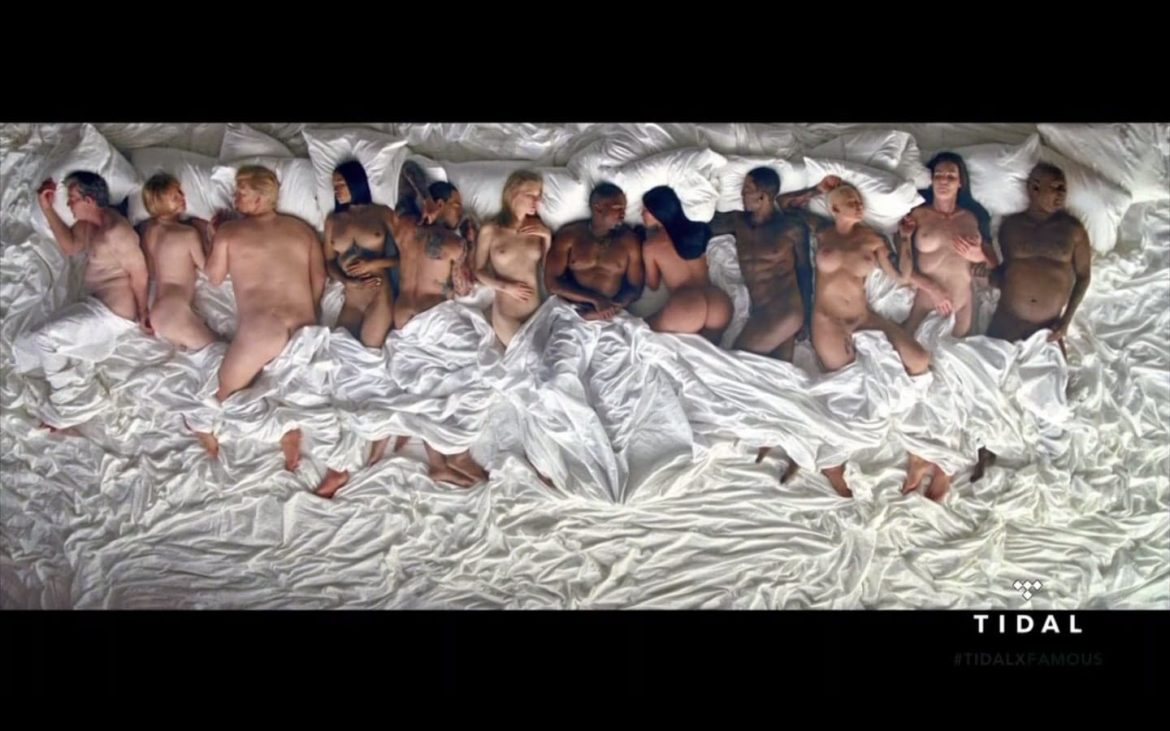Kanye West’s “Famous” has caused quite a bit of media uproar, not only since the song’s release, but even more so now that we’ve seen its visual representation. One of gender equality’s greatest enemies is high-profile “art” that sends the message to young people that it’s okay for women to be abused and hypersexualized and reduced to objects. Thankfully, around this piece of particularly repulsive high profile “art,” we’re hearing a new conversation that is much safer and more productive; one that comments and critiques this piece’s disgusting nature and reveres, empowers and nurtures the stories and lives of women.
With lyrics like, “I feel like me and Taylor might still have sex / Why? I made that bitch famous,” the song was controversial from the start. The video shows wax figures of celebrities naked bodies lying between the suggestively tangled sheets of a bed large enough to fit all of them. The media push back from the video was enough for Kanye to post on Twitter with viral-bound, Kardashian-esque media tactics, “sue me already.”
While Kanye explains that the figures of himself, Kim Kardashian, Taylor Swift, Bill Cosby, Anna Wintour, Rihanna, Chris Brown and more are innocently a “comment on fame,” Lena Dunham offers a more comprehensive analysis. Calling the video “one of the more disturbing ‘artistic’ efforts in memory,” she states that seeing “ the prone, unconscious, waxy bodies of famous women,” shown lying intimately in bed with their abusers, “twisted like they’ve been drugged and chucked aside at a rager…gives me such a sickening sense of dis-ease.”
In wake of Bill Cosby’s uncovered trial and Brock Turner’s delicate prison sentence, this video sends a nauseating message. While yes, nude art and social commentary do exist, so do threats to female safety. After listing a myriad of nude or pornographic art that Dunham has seen and enjoyed as artistic expression, she states “I know that art’s job is to make us think in ways that aren’t always tidy or comfortable. But this feels different.” Dunham expresses that to see these women that she knows and loves “reduced to a pair of waxy breasts made by some special effects guy in the Valley, it makes me feel sad and unsafe and worried for the teenage girls who watch this and may not understand that grainy roving camera as the stuff of snuff films.”

